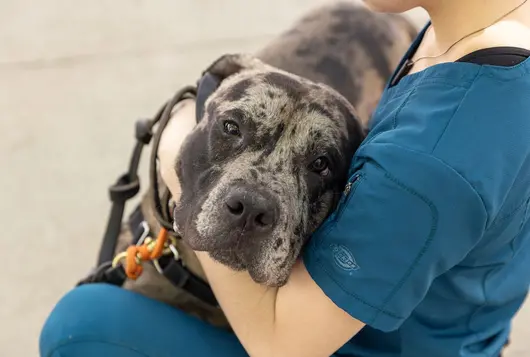Dangers & Veterinary Treatment Options for Cold & Flu Medications in Pets

Cough drop exposure happens more than you might think
When colds and flu symptoms hit, many people routinely take over-the-counter (OTC) medications without thinking how they may affect their pets—and that means more animals may end up in your waiting room.
There’s no one easy answer for human medication ingestions, and there are many ingredients to keep track of, so the ASPCA Animal Poison Control created this library of cold and flu medication toxicities and treatments.
Cough Drops
Pets will often suck down the cough drops their owners have handy. For the most part, cough drops aren’t as serious as some other flu and cold medications. Xylitol is the main ingredient to be concerned about in cough drops. Ingestions of xylitol can lead to hypoglycemia and potentially liver failure.
Pseudoephedrine
While cold and flu medications commonly contain multiple ingredients, pseudoephedrine is one that often causes serious problems. Stimulatory signs such as agitation, hyperactivity, tachycardia, hypertension, and tremors can be seen.
Dextromethorphan
Dextromethorphan is a common ingredient in over-the-counter cold, congestion, and flu medications, and pets who ingest it may need veterinary care. Low doses can cause depressive effects such as ataxia and lethargy while higher doses can cause stimulatory effects to the cardiovascular and neurologic systems.
Acetaminophen
Acetaminophen is commonly found in a lot of OTC products. It can lead to GI upset, dry eye, liver failure, and methemoglobinemia.
Ibuprofen and other NSAIDs
GI upset, GI ulceration, and acute renal injury are classic signs of acute NSAID toxicity—but did you know all NSAIDs are not created equal?
The gastrointestinal ulceration and acute renal failure effects of ibuprofen are well known, but high doses of ibuprofen can also cause CNS signs as well.
Antibiotics
There are three main antibiotics or classes of antibiotics that can cause seizure. It’s important to know which ones, because antibiotics can often be overlooked in seizure cases.
Eye Drops
Colds and flu can mean people are using eye drops to treat sore and red eyes., These drops are often kept in easily accessible places where a pet can get to them. Some eye drops cause mild GI upset in pets, but others can lead to ataxia, depression, hypotension, hypothermia, and bradycardia.
We have lots more on this subject:




